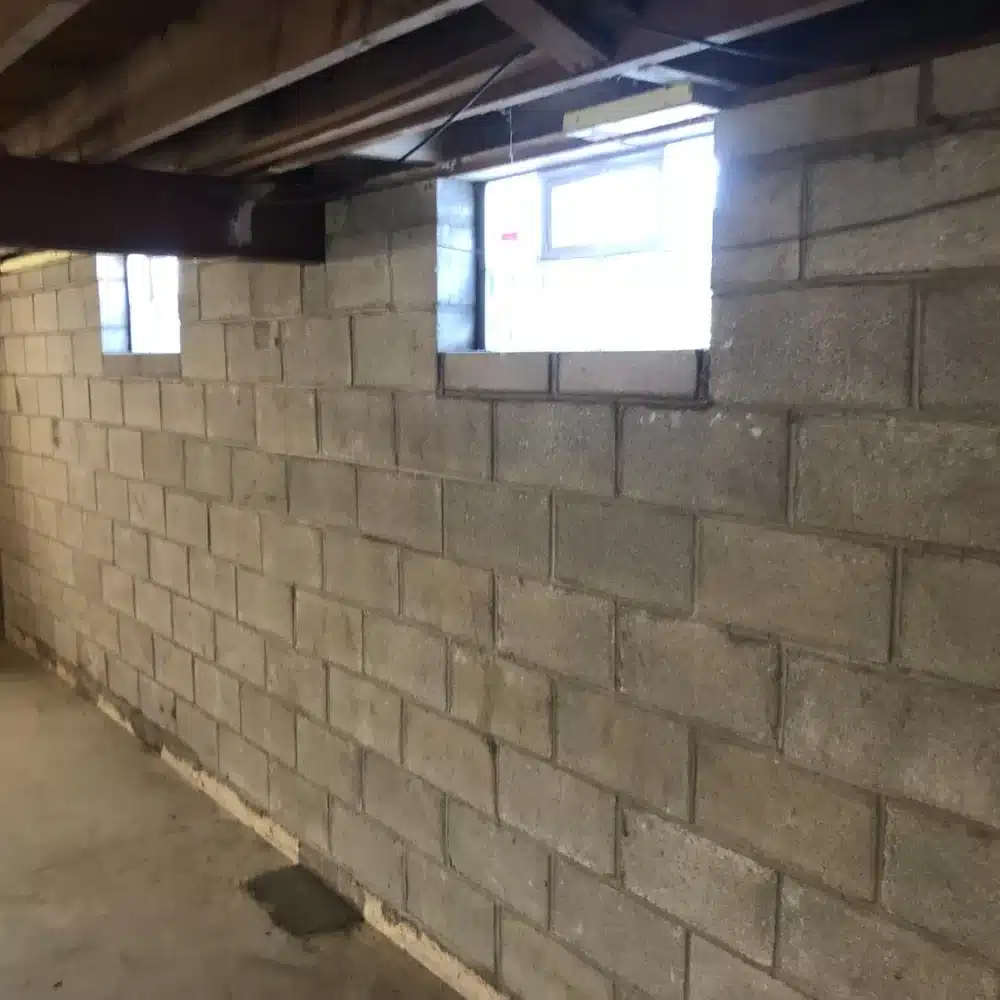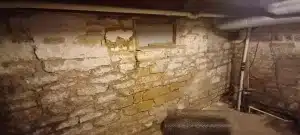
You’ve noticed some cracks in your home’s foundation and you’re worried this could be a major hurdle when it’s time to sell. Will potential buyers run the other way? Will this significantly drop your home’s value? It’s a complex issue, with legal implications, potential repair costs, and, yes, effects on your sale price. However, there are strategies to navigate this situation effectively. Let’s explore these options, weigh the pros and cons, and arm you with the knowledge you need to make an informed decision.
Key Takeaways
- Yes, you can sell a home with foundation cracks, but it’s crucial to disclose these issues to potential buyers.
- Foundation problems can significantly lower property appraisal values and deter offers.
- Selling strategies include selling “as-is” or making repairs before sale, each with its own benefits and drawbacks.
- Home inspections are essential in revealing the property’s condition and providing legal protection from future undisclosed issues lawsuits.
- Engaging professional help to evaluate damage and repair costs, along with a skilled realtor, can aid the selling process.
Understanding Foundation Cracks
Every homeowner should understand that foundation cracks, although common, should never be overlooked.
You see, these cracks aren’t just unsightly; they’re a sign of potential structural issues that could escalate if not addressed promptly.
To start with, you should be aware of the different crack types. Vertical cracks are usually the least severe and are often caused by settlement.
Diagonal cracks, typically resulting from differential settling, can be more serious. The most concerning are horizontal cracks, which indicate significant soil pressure and potential wall failure.
Now, let’s talk about repair methods. For minor vertical or diagonal cracks, you can often use an epoxy or polyurethane injection to seal the crack.
However, horizontal cracks or larger issues may require more extensive methods, such as underpinning or wall anchors.
Impact on Property Value
The impact of foundation cracks on your property’s value cannot be overstated. Foundation issues can significantly lower your home’s worth during a property appraisal, and might discourage potential buyers. This decrease in value is often due to the cost and complexity of repairs, as well as negative buyer perceptions.
Below is a table that illustrates the potential impact of foundation cracks on your property’s value:
| Impact | Description |
|---|---|
| Property Appraisal | Appraisers may significantly lower your home’s value due to foundation issues. |
| Buyer Perceptions | Buyers often perceive foundation problems as major issues, deterring them from making an offer. |
| Repair Costs | The cost to repair foundation cracks can be high, reducing your home’s overall value. |
| Marketability | Homes with foundation issues can be harder to sell, leading to longer listing periods and potential price reductions. |
It’s crucial you’re aware of these potential impacts when considering selling a home with foundation cracks. However, remember that not all cracks are the same, and it’s best to consult with a professional to understand the severity of your situation.
Legal Implications for Sellers
As you prepare to sell a home with foundation cracks, it’s imperative to understand your disclosure obligations and the potential legal consequences of not complying with these obligations.
If overlooked, you could find yourself in a legal bind that’s both costly and time-consuming.
Let’s explore these issues in more detail to ensure you’re well-informed and protected in your sale.
Disclosure Obligations
Before diving into the process of selling your home with foundation cracks, it’s crucial to understand your legal obligations for disclosure. As a seller, you’re legally required to disclose any known issues with the property, including foundation problems. This obligation isn’t only ethical but also a legal requirement in many states.
Understanding buyer expectations is essential. Most buyers expect a home that’s in good condition, free of major defects like foundation cracks. Disclosing these issues helps manage these expectations. It’s better to be upfront than to risk losing a sale, or worse, facing legal consequences for non-disclosure.
Moreover, consider the repair costs. If you don’t disclose the foundation cracks and the buyer discovers them later, you could be held responsible for the repair costs, which can be substantial.
This isn’t to mention the potential damage to your reputation as a seller.
Potential Legal Consequences
Ever wonder what could happen if you fail to disclose foundation cracks when selling your home? The potential legal consequences can be significant.
As a seller, it’s essential to understand your legal responsibilities, including the liability issues that can arise from non-disclosure.
You might face:
- Lawsuits for misrepresentation: Buyers could sue for damages if they discover the issue after purchase.
- Loss of sale: If the issue is discovered before closing, buyers may pull out of the deal.
- Monetary penalties: Courts can impose hefty fines for failure to disclose known issues.
- Repair costs: You might be ordered to cover the cost of repairing the foundation.
- Reputational damage: Your credibility as a seller could take a serious hit.
Disclosing Foundation Issues
Navigating the realm of real estate transactions, you may find yourself in a predicament when it comes to disclosing foundation issues. Whether you’ve discovered cracks during a foundation inspection or received repair estimates for significant damages, honesty is paramount.
Being upfront about the situation can mitigate buyer concerns and provide a platform for effective negotiation strategies. You’ll need to fill out disclosure forms detailing the condition of your property. Include foundation inspection reports and any repair estimates you have obtained.
Remember, withholding information may lead to legal consequences down the line. Buyers, armed with this information, can make informed decisions. They might request a lower price or ask for repairs to be made before finalizing the purchase. Your selling strategies should reflect these possible outcomes.
Understanding market trends is also essential. In a buyer’s market, transparency about foundation issues may make your property more appealing compared to others where such problems might be hidden.
In a seller’s market, even homes with significant issues may still attract buyers. Regardless, disclosure isn’t only ethical but also fosters trust, which can be a powerful tool in real estate transactions.
Repairing Before Selling
Shifting gears slightly, let’s consider the option of repairing foundation issues before you put your home on the market. This approach has its own set of challenges and benefits. Here, we’ll delve into foundation repair options and cost considerations.
You can choose from a variety of foundation repair options, each with its unique set of implications. Here are some options:
- Underpinning: Strengthens the foundation by extending its depth or breadth to more stable soil.
- Piering: Involves driving steel piers into the ground to support the foundation.
- Sealing: Used to prevent water leaks, an element contributing to foundation damage.
- Slabjacking: Lifts the concrete slab back to its original position by pumping a mixture underneath.
- Grading: Improves water drainage around the foundation, thus preventing future damage.
Each repair option varies in cost. Some may be relatively affordable, while others could run into thousands of dollars.
Factors impacting these costs include the extent of damage, repair method chosen, and labor rates in your area. Therefore, it’s essential to get a detailed inspection and multiple quotes before diving into repair works.
This proactive approach can help you make an informed decision, potentially enhancing your home’s market value.
Selling As-Is: Pros and Cons
You may consider selling your home ‘as-is’, which means selling it in its current condition without making any repairs.
There are potential benefits to this strategy, such as speed and cost savings, but it’s important to also be aware of the possible drawbacks, including lower offers and potential legal issues.
Let’s look at these pros and cons in more detail to help you make an informed decision.
Understanding “As-Is” Sales
Selling a home “as-is” can often seem like a double-edged sword. It can simplify your sales process, but it can also lead to challenging as-is negotiations.
When selling as-is, you’re essentially telling potential buyers that what they see is what they get. No repairs or improvements will be made, and the price reflects this. This can be attractive to some buyers looking for a project or a bargain.
However, it can also set certain buyer expectations. Some might expect a steep discount, while others may anticipate hidden issues that could complicate their plans.
To help you visualize the process, consider:
- The simplicity of an as-is sale: no need for renovations or repairs.
- Potential for quick sales to investors or DIY enthusiasts.
- The risk of lower offers due to perceived or real property issues.
- The potential difficulty in as-is negotiations with bargain hunters.
- The possibility of scaring off buyers who fear unknown problems.
Understanding the intricacies of as-is sales can help you make an informed decision about whether this approach is right for you when selling a home with foundation cracks.
Potential Benefits
In the realm of real estate, selling a home as-is, foundation cracks and all, can indeed offer a handful of enticing benefits. For one, you’ll bypass the headache of foundation repair. This means no dealing with contractors, no unexpected costs, and no time-consuming renovations. You’re essentially passing the responsibility to the buyer, which can be a relief for you.
Moreover, selling as-is can expedite the process. You won’t be held up by repair schedules or inspections. This speed can be particularly beneficial if you’re facing a time crunch or if you’ve already bought another property and need to close the deal swiftly.
However, be aware that these benefits hinge on buyer concerns. Potential buyers may balk at the prospect of tackling foundation issues themselves. It’s crucial to be transparent about the property’s condition from the get-go. Any attempts to mask the problem could backfire, leading to lost sales or even legal issues.
In a nutshell, while selling a home as-is has its advantages, it’s not without its challenges. Making an informed decision requires weighing these pros against the cons, which we’ll explore in the next section.
Possible Drawbacks
Navigating the treacherous waters of selling a house with foundation issues isn’t without its pitfalls. As you might expect, there are some significant drawbacks that can complicate the process.
- Repair costs: It’s no secret that fixing foundation issues can be pricey. If you’re selling as-is, you won’t have to foot the bill, but these costs might be reflected in lower offers from buyers.
- Buyer concerns: Foundation problems can scare off potential buyers, limiting your pool of interested parties.
- Market perception: A home with known foundation issues can be perceived as a ‘problem property,’ affecting its marketability.
- Negotiation tactics: Savvy buyers might use the foundation issues as a negotiation tool to drive down the price.
- Inspection findings: A home inspection will likely uncover the foundation problems, which can lead to renegotiations or even a collapsed deal.
These factors can also lead to longer repair timelines and financing challenges for the buyer, making the selling process more time-consuming and potentially less profitable for you.
Despite these drawbacks, there are selling strategies that can help mitigate these issues, turning your problem property into a sold property.
Role of Home Inspections
While you may feel daunted by the prospect of home inspections, it’s critical to understand their importance when you’re selling a house with foundation cracks. A thorough inspection process can give you a clear picture of your property’s state, highlighting any underlying issues that may affect your sale.
Home inspections are not just for your benefit. They also provide potential buyers with an assurance that they’re making a sound investment. An inspection that uncovers foundation cracks can be a deal-breaker, but it’s better to be upfront about these issues rather than risking a lawsuit later on.
Consider the following table:
| Role of Inspection | Emotional Impact |
|---|---|
| Unveils hidden issues | Gives peace of mind |
| Provides a clear state of property | Reduces uncertainties |
| Helps in pricing the house accurately | Prevents feelings of regret |
| Protects seller from future lawsuits | Instills confidence |
| Assures buyer of their investment | Enhances trust |
Expert Advice for Home Sellers
Having acknowledged the importance of home inspections, let’s turn our attention to some expert advice that can guide you through the process of selling a house with foundation cracks.
Here are five seller strategies that can help you navigate this journey:
- Assess the Situation: Before putting your home on the market, have a professional evaluate the extent of the damage. They can provide an estimate for foundation repair, which can be a significant bargaining chip in negotiations.
- Be Transparent: Honesty is key when selling a home with foundation issues. Potential buyers will appreciate your transparency and it may prevent legal complications down the line.
- Consider Repairing: Depending on the severity of the cracks, it might be worth fixing them before selling. Consult with a foundation repair expert to weigh your options.
- Set a Fair Price: Factor in the cost of the needed repairs when setting your asking price. This can make your home more appealing to buyers.
- Get a Great Realtor: A skilled realtor can navigate the complexities of selling a home with foundation issues. They can help devise a marketing strategy that works in your favour.
Frequently Asked Questions
How Do Foundation Cracks Affect a Homes Energy Efficiency?
Yes, foundation cracks can significantly affect your home’s energy efficiency.
They can leave your dwelling vulnerable to energy loss, especially in winter. As the cold air seeps in, your heater works harder to maintain warmth, increasing energy consumption.
Similarly, in summer, cool air escapes, making your air conditioner work harder.
Moreover, these cracks can lead to insulation issues, making your home less energy-efficient.
Can Foundation Cracks Attract Pests Into My Home?
Yes, foundation cracks can indeed attract pests into your home. They provide easy entry points for various pests, including rodents and insects.
What’s more, larger cracks could even signal structural damage, which might create additional nooks and crannies for pests to nest in.
It’s essential to address these issues promptly to prevent a minor pest problem from turning into a full-blown infestation.
Is It Possible to Sell a Home With Foundation Cracks Without Repair?
Yes, you can sell a home with foundation cracks, but you’ll need to meet disclosure requirements.
It’s necessary to inform potential buyers about the issue.
However, keep in mind that foundation problems might raise concerns for buyers. They might request a price reduction or ask you to fix the issues before purchase.
It’s crucial to be transparent to avoid future legal complications.
How Long Does It Typically Take to Repair Foundation Cracks?
Repair timelines for foundation cracks can vary greatly.
After a foundation assessment, it typically takes one to two weeks to repair minor damage.
However, if the cracks are extensive, it could take several weeks to a couple of months.
You’ll need to consider factors like the severity of the cracks, the type of soil, and weather conditions.
What Type of Professional Should I Hire to Assess Foundation Cracks?
You’d ideally want to hire both foundation specialists and structural engineers to assess foundation cracks.
Foundation specialists will physically repair the cracks, while structural engineers will ensure the building’s overall safety.
They’ll determine if the cracks are superficial or if they’re indicative of a more serious structural problem.
It’s crucial to have a comprehensive understanding of your home’s foundation health.
So, can you sell a home with foundation cracks? Absolutely, but it’s crucial to be strategic. Disclose any issues upfront and consider the pros and cons of repairing versus selling as-is. Remember, home inspections and professional advice can help guide your decisions. With careful planning and transparency, selling a home with foundation cracks doesn’t have to be a daunting task. Ultimately, the key is to ensure buyer confidence while maximizing your property’s value.

All-Star Basements is Locally Owned and Operated and based out of Rochester, Minnesota. We cover Southern Minnesota including the Twin Cities area, Western Wisconsin and parts of Northeast Iowa. Our team is committed to solving our customers’ basement waterproofing, foundation repair, or crawl space needs and offering multiple solutions to choose from.
As a proud member of the Basement Health Association and the National Waterproof Members of America, we have the best products available to solve your leaky basement, seepage, or flooding issues. Our lineup also includes multiple crawl space solutions.
If you have foundation problems that need any kind of repair, we can help! We feature the nationally renowned Grip-Tite Foundation Systems, which has a long history over 90 years of fixing homeowners’ foundation repair issues- from walls that are buckled, tipping or cracked and bowing.
At All-Star Basements, we are committed to providing multiple solutions to choose from to help fix any basement problem you may have. We are very proud of our Better Business Bureau A+ rating and take great pride in caring for all of our customers’ needs- big or small, we do it all!